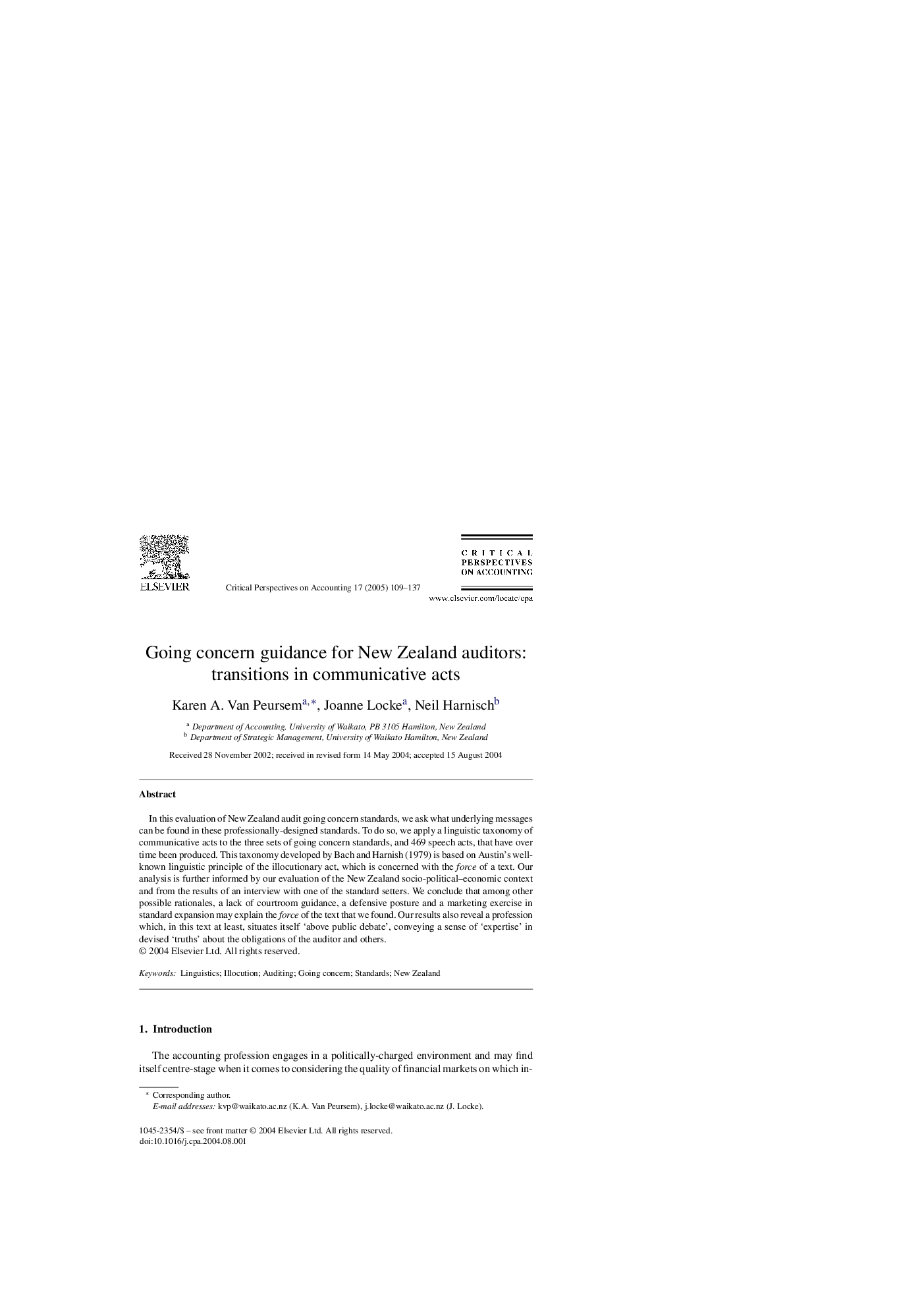| Article ID | Journal | Published Year | Pages | File Type |
|---|---|---|---|---|
| 1001868 | Critical Perspectives on Accounting | 2006 | 29 Pages |
In this evaluation of New Zealand audit going concern standards, we ask what underlying messages can be found in these professionally-designed standards. To do so, we apply a linguistic taxonomy of communicative acts to the three sets of going concern standards, and 469 speech acts, that have over time been produced. This taxonomy developed by Bach and Harnish (1979) is based on Austin's well-known linguistic principle of the illocutionary act, which is concerned with the force of a text. Our analysis is further informed by our evaluation of the New Zealand socio-political–economic context and from the results of an interview with one of the standard setters. We conclude that among other possible rationales, a lack of courtroom guidance, a defensive posture and a marketing exercise in standard expansion may explain the force of the text that we found. Our results also reveal a profession which, in this text at least, situates itself ‘above public debate’, conveying a sense of ‘expertise’ in devised ‘truths’ about the obligations of the auditor and others.
